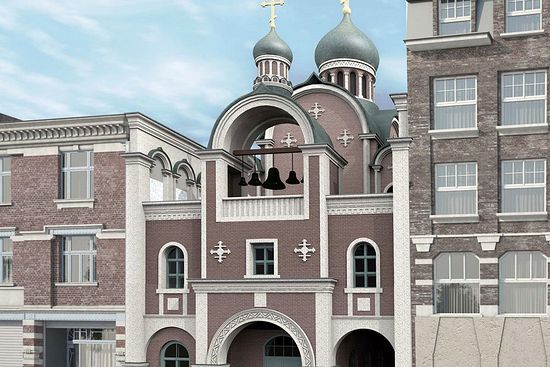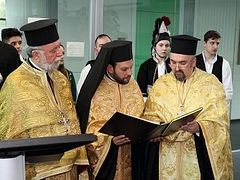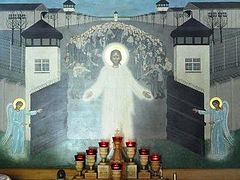Liège, Belgium, July 27, 2017
A church is set to be built in the Belgian city of Liège on the site where a concentration camp held Soviet prisoners of war during the Second World War, reports Russian Gazette. “The idea for constructing an Orthodox memorial church arose among the Orthodox parishioners of Liège, and was supported by Archbishop Simon of Brussels and Belgium,” says Archpriest Paul Nedosekin, who is in charge of the construction project.
The group of parishioners from the Russian-speaking community heading the initiative formed a community of the Moscow Patriarchate in 2006, gathered funds and purchased a plot for construction, and also prepared the architectural design documents and received the necessary construction permits.
Nazi concentration camp LV VIII Seraing was active in the city of Liège during the Second World War. The first group of Soviet prisoners was sent there in September 1942. Later young people forcibly removed from the occupied territories of the USSR, were added to the camp. The prisoners were used for the toughest labor in the Seraing-Liège coal mines.
“An Orthodox church was built in one of the barracks, where a priest sent by the Russian Orthodox church in Paris served,” said Fr. Paul.
The Russian community of Liège plans to build a memorial temple, where they will install plates with the names of all the prisoners who died in the camp, as well as all the Soviet soldiers buried in Belgian cemeteries. There will also be a Museum dedicated to the heroic deeds of Soviet soldiers. The construction was officially approved by Patriarch Kirill in 2015.
The cost of construction of the new church is 520,000 euros ($610,000), which the community is currently trying to collect. The parishioners are counting on help from various Russian departments, particularly the Defense Ministry, the State Duma, the Ministry of Culture, and other organizations.
“The Russian diaspora has a rich tradition of creating memorial churches,” noted Abp. Simon. “We want to revive this tradition and pay tribute to the memory not only of the Soviet soldiers, but also to the members of the Belgian Resistance who risked their lives helping Soviet prisoners of war,” he added.




